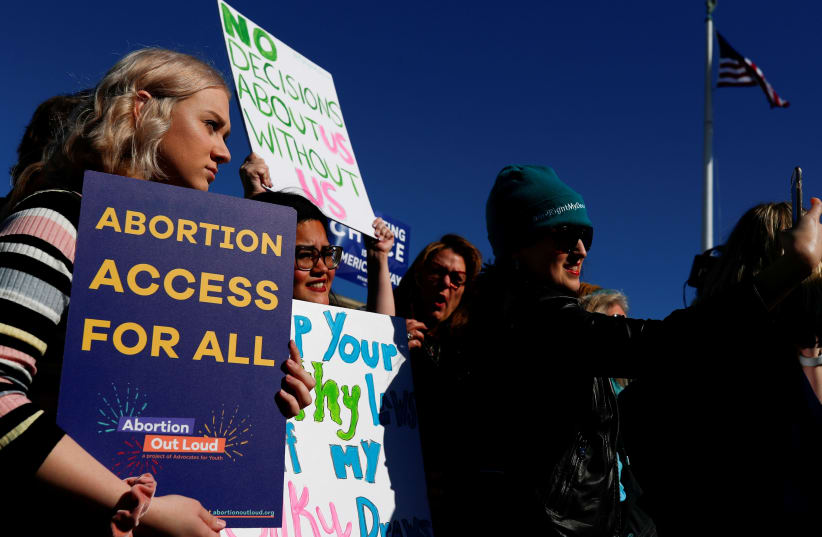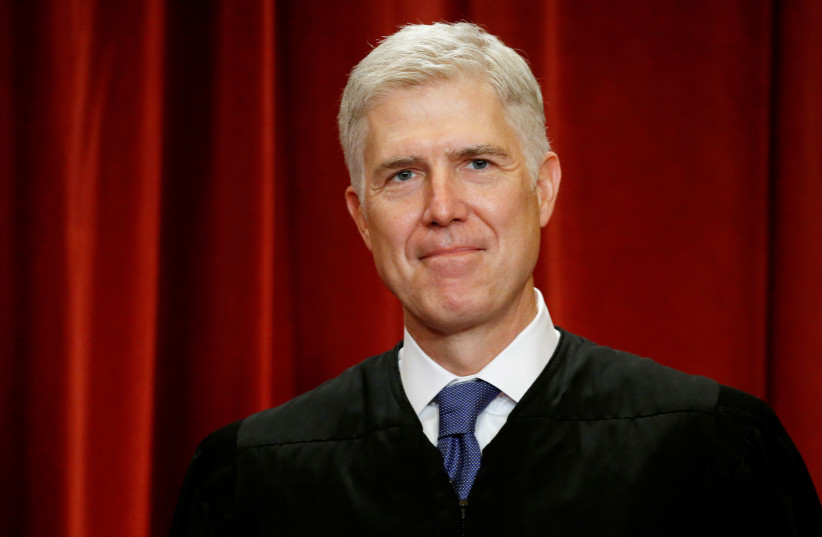The US Supreme Court on Friday allowed abortion providers to pursue a legal challenge to a ban on most abortions in Texas, with the fate of the Republican-backed measure that allows private citizens to enforce it now hanging in the balance.
The justices, who heard arguments on the case on Nov. 1, lifted a block on lower court proceedings, likely paving the way for a federal judge to formally block the law. The conservative-majority court on Sept. 1 had declined to halt the law. The court in a separate case dismissed a separate challenge brought by President Joe Biden's administration.
The abortion providers and the Biden administration had asked the Supreme Court to block the Texas law while the litigation continues, but the justices opted to leave it in place for now.
The Supreme Court has yet to decide another major abortion rights case from Mississippi that could lead to the overturning of the landmark 1973 Roe v. Wade ruling that legalized the procedure nationwide.
The Texas measure is the nation's most restrictive abortion law. It bans abortions at around six weeks, a point in time when many women do not yet realize they are pregnant, and has no exception for pregnancies resulting from rape or incest. It is one of a series of restrictive abortion laws passed by Republicans at the state level in recent years.
The court in the Texas case, in an 8-1 decision authored by conservative Justice Neil Gorsuch, ruled that the challenge was allowed under a 1908 Supreme Court precedent that said state laws can be challenged in federal court by suing state government officials.
Texas had sought to exploit a loophole in that earlier ruling by saying no state officials could enforce it, but the Supreme Court said the challengers could pursue their case by naming state licensing officials as defendants.
Conservative Justice Clarence Thomas dissented on that part of the ruling, saying he would have dismissed the lawsuit altogether.
The Texas law, known as S.B. 8, enables private citizens to sue anyone who performs or assists a woman in getting an abortion after cardiac activity is detected in the embryo. Individual citizens can be awarded a minimum of $10,000 for bringing successful lawsuits under the law. Biden's administration has called it a "bounty."
That feature made it more difficult to directly sue the state to challenge the law's legality, helping shield the measure from being immediately blocked.
'THE FEDERAL RIGHT'
Conservative Chief Justice John Roberts, joined by the court's three liberal justices, agreed that licensing officials can be sued, but said the providers could also target other officials, including state court clerks and the attorney general.
Roberts criticized the Texas law as specifically designed to "nullify" the Supreme Court's precedents on abortion, effectively denying women a constitutional right.
The court cannot allow legislatures to evade federal court judgments, Roberts added.
"The nature of the federal right infringed does not matter; it is the role of the Supreme Court in our constitutional system that is at stake," Roberts wrote.
Liberal Justice Sonia Sotomayor, while agreeing with the court's decision to allow the challenge, wrote a partial dissent blasting her colleagues for failing to "put an end to this madness" and warning that other states could still try to copy Texas' enforcement mechanism because the state's attorney general and state court judges could not be named as defendants in court challenges.
"By foreclosing suit against state-court officials and the state attorney general, the court effectively invites other states to refine S.B. 8's model for nullifying federal rights," Sotomayor wrote.
"The court thus betrays not only the citizens of Texas but also our constitutional system of government," she added in an opinion joined by the other two liberal justices, Stephen Breyer and Elena Kagan.
Gorsuch said in the ruling that state judges and clerks are improper proper targets for lawsuits against the abortion ban.
"Judges exist to resolve controversies about a law's meaning or its conformance to the federal and state constitutions, not to wage battle as contestants in the parties' litigation," Gorsuch wrote.
Abortion providers and the Biden administration in separate legal challenges argued that the law violates a woman's constitutional right to terminate a pregnancy recognized in the Roe v. Wade ruling and is impermissibly designed to evade federal judicial review.
The Mississippi law - blocked by lower courts - bans abortions starting at 15 weeks of pregnancy. The court's conservative justices during oral arguments in the Mississippi case on Dec. 1 indicated toward the Mississippi measure and potential support for overturning Roe.
How the conservative justices voted in the Texas case may not guide how they vote on the Mississippi law because the legal issues differed, particularly relating to its unusual enforcement mechanism.

